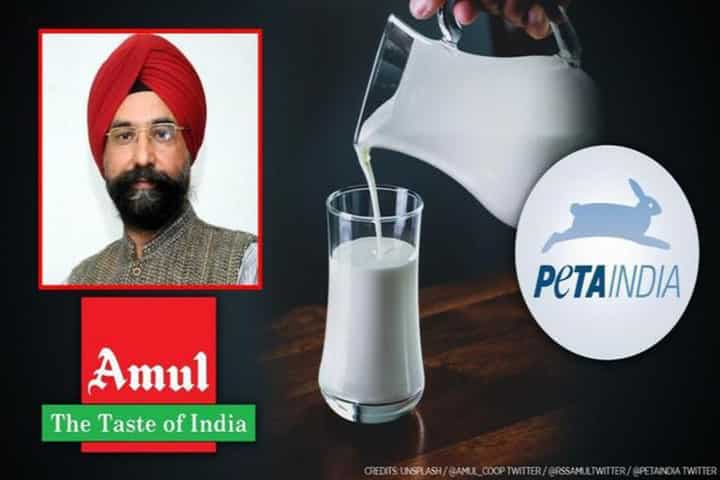Being one of the leading cooperatives in India and a pioneer in the dairy segment, Amul has always taken the lead not just in product innovation but also in defending itself against competitors. It is probably one of the best examples of a cooperative using media, advertisements, publicity, social and digital media, to further the interests of its stakeholders.
Ad blitz
Recently, in a newspaper advertisement, Amul highlighted the “myths” about non-dairy beverages that are alternatives to milk. The ad goes to show that “milk” was being encroached by plant-based beverages. These beverages are from soya, almonds, oats etc, and this the cooperative believes is misleading for consumers.
Amul has always defended its “milk” segment. It stated that Vanaspati which is being sold as “vegetable ghee” is not so as ghee is only milk fat and not vegetable fat. Likewise, Amul asserted that only ice-cream with 10 per cent milk fat can be termed as ice-cream and when milk fat is replaced with vegetable oil, it should be called “frozen dessert” even if it has 11 per cent solids-not-fat.
The ad on “myths” explains what it calls facts like “Dairy Farming Is Good For The Cattle”; “Milk Is A Complete Food, Natural As Well As Vegetarian. It Is Superfood”; “Milk Is The Dairy Industry. Impersonating Or Masquerading As A Dairy Product Is Illegal”; and “Milk Is An Instrument Of Socio-Economic Development & Dairy Is India’s Largest Crop Contributing Rs.8 Lac Crore To The GDP”
 .
.
FSSAI regulations
The new regulations of the Food Safety and Standards Authority of India (FSSAI) in 2017, states that a company cannot claim or suggest in advertisements and packaging that a non-milk product is made out of milk. Thus Amul is seeking to draw attention of FSSAI to enforce existing rules by highlighting these cases through ads.
Enter PETA
Reacting to this ad, People for the Ethical Treatment of Animals (PETA) India sent a letter on May 27 to RS Sodhi, Managing Director of Gujarat Cooperative Milk Marketing Federation Ltd. It suggested that instead of panicking, Amul needs to accept that dairy-free milks are here to stay, and that it should switch to producing them exclusively. PETA urged Amul to “benefit from the booming vegan food and milk market”.
PETA India's letter to @Amul_Coop in full, letting the company know about the business opportunity the rise in #vegan eating presents. @Rssamul #PETA pic.twitter.com/W7PMnkua6D
— PETA India (@PetaIndia) May 28, 2021
Sodhi’s tweets
Not liking what was suggested by PETA, Sodhi took to Twitter. He asked if switching over to vegan milk will provide 100 million dairy farmers, 70% of whom are landless, with a livelihood, and pay their children’s school fees, and how many people in India can actually afford lab-manufactured milk.
“Peta wants Amul to snatch livelihood of 100 mill poor farmers and handover it's all resources built in 75 years with farmers money to market genetically modified Soya of rich MNC at exorbitant prices, which average lower middle class can't afford “Will they give livelihood to 100 million dairy farmers (70% landless)? Who will pay for their children's school fees? How many can afford expensive lab manufactured factory food made out of chemicals and synthetic vitamins?” his tweet said.
Peta wants Amul to snatch livelihood of 100 mill poor farmers and handover it's all resources built in 75 years with farmers money to market genetically modified Soya of rich MNC at exhorbitant prices ,which average lower middle class can't afford https://t.co/FaJmnCAxdO
— R S Sodhi (@Rssamul) May 28, 2021
While both the sides are sticking to their respective arguments, several others have joined in, taking one side or the other. Joining the debate, while some are extolling the virtues of vegan milk others are lashing out at PETA.




















